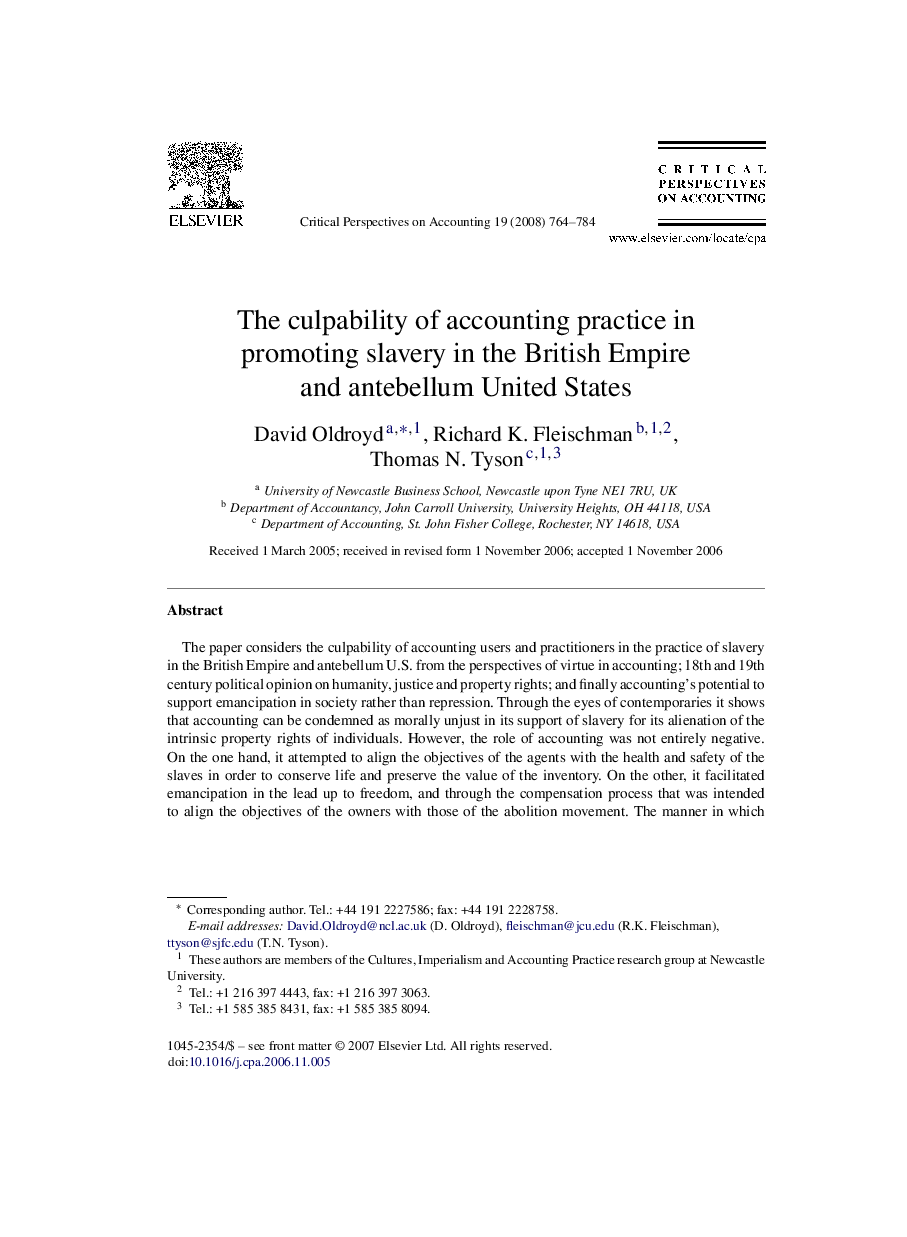| Article ID | Journal | Published Year | Pages | File Type |
|---|---|---|---|---|
| 1001055 | Critical Perspectives on Accounting | 2008 | 21 Pages |
The paper considers the culpability of accounting users and practitioners in the practice of slavery in the British Empire and antebellum U.S. from the perspectives of virtue in accounting; 18th and 19th century political opinion on humanity, justice and property rights; and finally accounting's potential to support emancipation in society rather than repression. Through the eyes of contemporaries it shows that accounting can be condemned as morally unjust in its support of slavery for its alienation of the intrinsic property rights of individuals. However, the role of accounting was not entirely negative. On the one hand, it attempted to align the objectives of the agents with the health and safety of the slaves in order to conserve life and preserve the value of the inventory. On the other, it facilitated emancipation in the lead up to freedom, and through the compensation process that was intended to align the objectives of the owners with those of the abolition movement. The manner in which accounting was utilised by both supporters and opponents of slavery illustrates its potential as an agent of social change.
